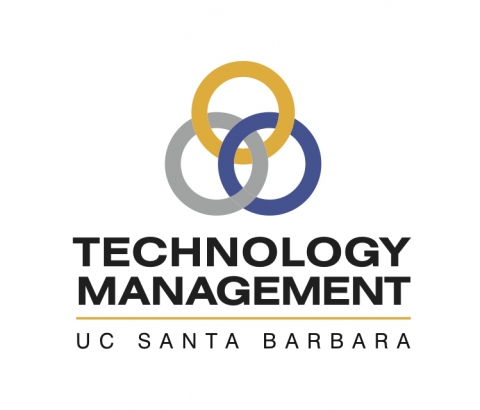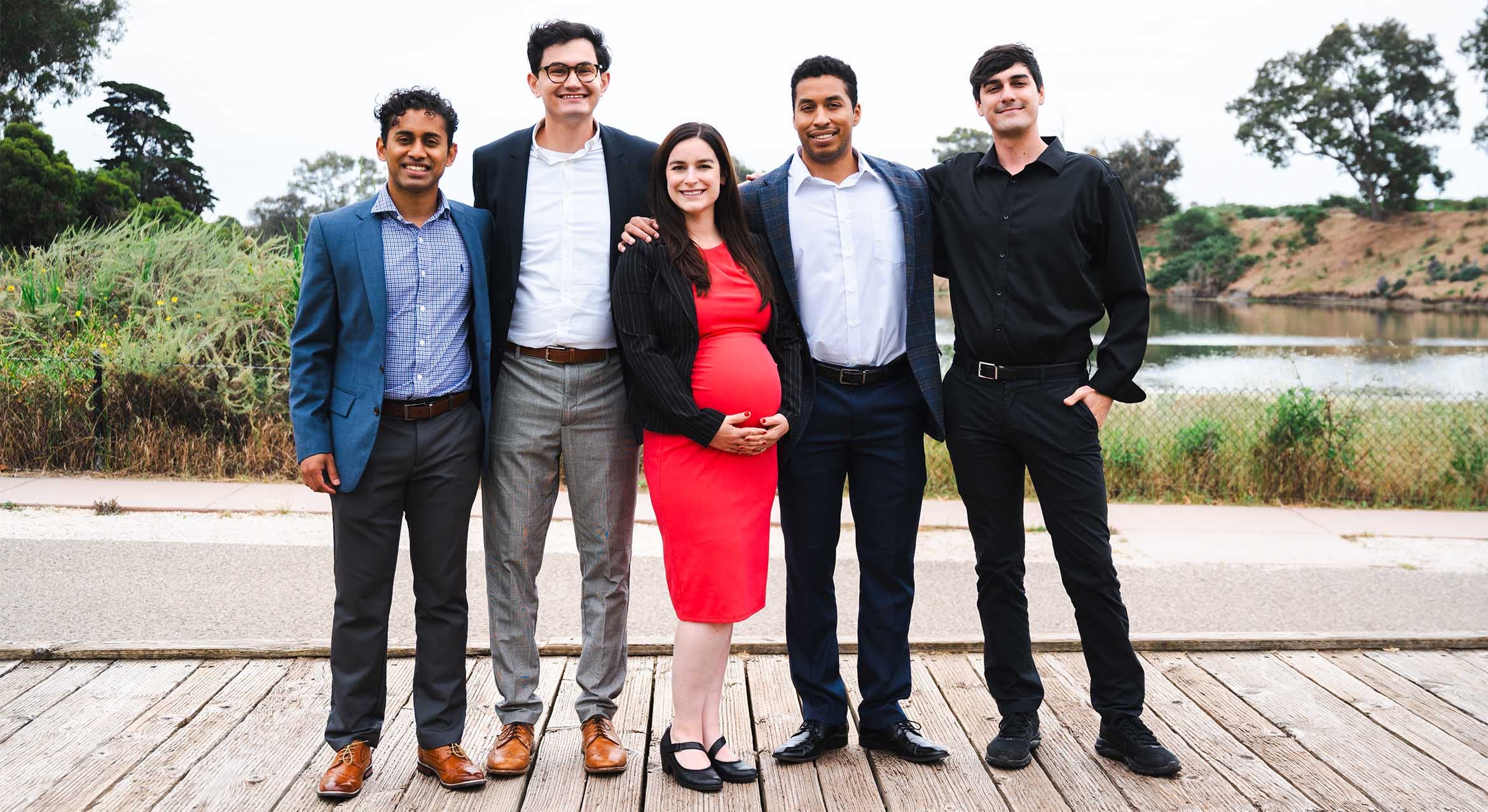
Getting Ahead of the Curve
As we move toward an increasingly technological future, the skills and knowledge necessary to manage and cultivate technology and the workforce around it are ever more important. A growing number of disciplines, such as communications, management and social sciences — in addition to the traditionally tech-heavy fields of science and engineering — are becoming reliant on technology and its innovations, and those who can train and organize their work and team around it are becoming more valuable.
So say the minds behind UC Santa Barbara’s newest doctoral degree, the Technology Management Program’s (TMP) Ph.D. in Technology Management. The offering integrates organizational studies with technology and innovation studies, aiming to put its students at the leading edge of business and technology.
“Not only do we want to develop scholars whose research examines the intersection of technology and social systems, we also want to establish TMP’s reputation for research excellence,” said TMP professor Kyle Lewis. In the short decade since the program’s inception as a business plan competition and certificate program, technology management at UCSB has developed into an interdisciplinary field with theoretical and practical significance.
Not long after TMP’s New Venture Competition gained traction — and grew networking opportunities for both students and the veteran tech entrepreneurs who would become their mentors and partners — the program’s faculty raised the game. TMP became a graduate program in 2015, offering a Master of Technology Management, in which inventors and innovators took their work off the bench and into the boardroom. They brought in experts who provided valuable training and insight into the less tangible but equally significant fields of leadership, communication and decision-making in the fast-paced world of tech entrepreneurship.
Now, according to Lewis, it’s time to advance scholarship in technology management, with studies and investigations into forward-looking concepts, ideas and trends. Understanding the roles for corporate culture, leadership and organizational structure in a virtual, internet-connected world, or strategies for using social networks to support continuing innovation are the sorts of topics now on the table.
“I think in the last decade to 15 years there’s been much more exploration at the intersection of technology and organization,” Lewis said. “In particular: How does technology influence organizational systems and how do organizational systems influence technology? Those questions are now an emerging focus of research — but not a particular emphasis of so many Ph.D. programs — which is where we think our advantage lies.”
UCSB, Lewis said, is particularly fertile ground for doctoral research in technology management because of the strength of its engineering, science and social science scholarship, and its long history of interdisciplinary collaborations. Students and researchers routinely think outside the box of their own departments and embrace cross-discipline endeavors.
“Questions related to technology innovation are of great interest to TMP faculty,” she said. “At UCSB, we can observe in our own university laboratory how innovation occurs, and we can also understand once innovation has occurred, how do those innovations become adopted in or diffused across organizations.” In her research, for instance, Lewis works with a variety of partners in the engineering disciplines and in the social sciences to understand how teams of people share information and innovate.
Other TMP professors specialize in research topics such as the impact of technology on work, organizational culture, strategic management, the effect of social networks on new ventures and industrial organization economics, to name a few. Among the main goals of the doctoral program is to prepare its graduates to teach and research in a variety of fields in which technology management is becoming more prominent and necessary, from business to communication, social sciences to public service.
TMP is accepting applications for its inaugural Fall 2017 doctoral class. Deadline for application is Jan. 15, 2017. For more information, contact phd-tmp@tmp.ucsb.edu.



